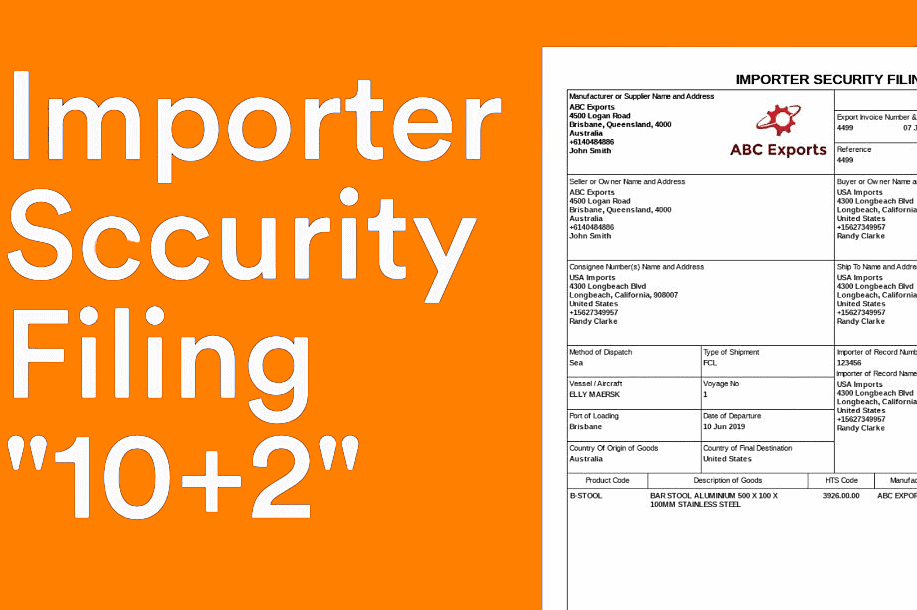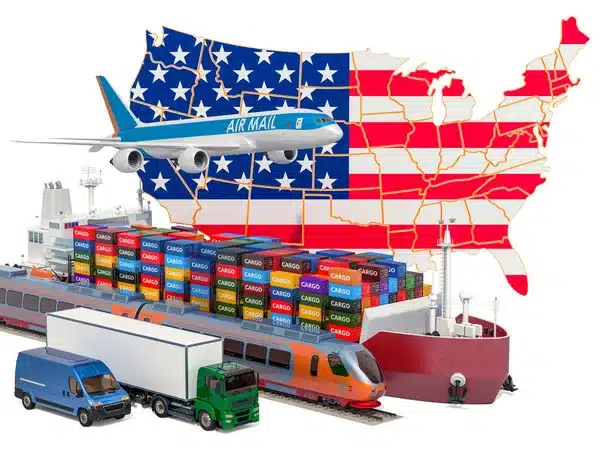In the world of international shipping, ensuring compliance with customs regulations is paramount. One such critical requirement for shipping goods to the United States is the Importer Security Filing (ISF). Often referred to as the “10+2” filing, ISF is a mandatory step for ocean freight shipments bound for the US. It helps US Customs and Border Protection (CBP) improve security measures and manage risks associated with imported cargo.
This guide explores what ISF filing is, why it is essential, how to file it correctly, and the consequences of failing to comply with its requirements.

Table of Contents
What Is ISF Filing?
ISF Filing, or Importer Security Filing, is a regulation mandated by the US CBP. It requires importers and carriers to submit specific information about their ocean cargo shipments before they are loaded onto a vessel bound for the US. The term “10+2” refers to the 10 data elements importers must provide and the 2 data elements carriers must submit.
Key Objectives of ISF Filing
Enhance supply chain security.
Provide CBP with detailed information to identify high-risk shipments.
Ensure compliance with international shipping regulations.
ISF Filing Requirements
The ISF filing involves two main components:
Importer’s 10 Data Elements
Importers are required to provide the following 10 data elements:
Seller’s Name and Address.
Buyer’s Name and Address.
Importer of Record Number.
Consignee Number(s).
Manufacturer or Supplier Name and Address.
Ship-to Party.
Country of Origin.
Commodity Harmonized Tariff Schedule (HTS) Code.
Container Stuffing Location.
Consolidator Name and Address.
Carrier’s 2 Data Elements
Carriers are required to submit:
Vessel Stow Plan.
Container Status Messages (CSM).
When and How to File ISF
1. Filing Timeline
- ISF must be filed at least 24 hours before cargo is loaded onto the vessel bound for the US.
2. Filing Process
- Step 1: Collect necessary data from suppliers, carriers, and freight forwarders.
- Step 2: Use an authorized software platform or customs broker to submit the ISF electronically.
- Step 3: Verify the submission and track the filing status through CBP systems.
Importance of ISF Filing
ISF Filing is crucial for several reasons:
Compliance with US Regulations: Avoid penalties and shipment delays by adhering to CBP requirements.
Supply Chain Visibility: Enhance transparency in cargo movement.
Risk Mitigation: Minimize security threats by providing detailed shipment information.
Efficient Customs Clearance: Speed up the clearance process by ensuring all data is submitted accurately and on time.
Penalties for ISF Non-Compliance
Failure to file ISF correctly or on time can result in severe consequences:
Monetary Penalties: Fines of up to $5,000 per violation.
Shipment Holds: Delays in cargo clearance and delivery.
Increased Scrutiny: Future shipments may face higher levels of inspection.
Customs Bond Claims: Non-compliance may lead to claims against customs bonds.
How to Ensure ISF Compliance
1. Work with Experienced Freight Forwarders
Freight forwarders like Tonlexing specialize in handling ISF filings, ensuring accuracy and timeliness.
2. Implement Robust Data Management
Maintain organized records of all shipment details to simplify the filing process.
3. Monitor Filing Status
Use tracking systems to confirm that ISF filings are submitted and accepted by CBP.
4. Educate Your Team
Train your logistics and supply chain teams on ISF filing requirements and best practices.
Shipping from China to the USA: Your Comprehensive Guide
Choosing the Right Transportation Mode
When shipping from China to the USA, it’s essential to choose the most suitable mode of transportation based on your cargo type, urgency, and budget. Here are the three primary modes:
Sea Freight: Ideal for large quantities of goods. It’s cost-effective but takes longer, typically 25 to 40 days.
Air Freight: Best for small quantities, high-value, or time-sensitive goods. Shipping time ranges from 5 to 10 days, with higher costs.
Express Shipping: Suitable for small packages or samples. It offers fast delivery (3 to 7 days) but at a premium price.
Importance of ISF Submission
For goods shipped via sea freight, Import Security Filing (ISF) is a mandatory requirement. Failure to submit accurate ISF information on time can result in shipment delays or significant fines. Partnering with a professional freight forwarder like Tonlexing ensures that your ISF submissions are accurate and timely, safeguarding your shipments from unnecessary disruptions.
Cost of Shipping from China to the USA
Shipping costs vary depending on the mode of transportation, cargo size, and destination. Below are approximate costs:
| Shipping Method | Cost |
|---|---|
| Sea Shipping (20ft Container) | Approx. USD 2,750 for a 20ft container |
| Sea Shipping (40ft Container) | Approx. USD 3,800 for a 40ft container |
| Sea Shipping (LCL) | Approx. USD 110 per cubic meter (m3) |
| Air Freight Shipping | Approx. USD 580 for 100kg |
| Door-to-Door Shipping | Approx. USD 9 to 14 per kg or USD 130–200 per m3 |
| DDP Air Freight | Approx. USD 11 to 17 per kg |
| DDP Sea Freight | Approx. USD 160 to 330 per m3 |
| Express Shipping | Approx. USD 14.5 per kg |

Factors Influencing Shipping Costs
Several factors impact the total shipping cost:
Transportation Mode: Sea freight is more economical, while air freight is faster.
Cargo Size and Weight: Larger or heavier shipments incur higher costs.
Destination Port or Airport: Fees vary based on location and handling charges.
Customs Duties and Taxes: These depend on the type and declared value of goods.
Tonlexing Logistics Services
Tonlexing offers end-to-end logistics solutions tailored to your needs for shipping from China to the USA. Our services include:
Door-to-Door Transportation: Seamless delivery from your supplier’s warehouse to your destination.
ISF Submission Support: Assistance with accurate and timely ISF filings.
Customs Clearance Services: Hassle-free clearance for your shipments.
Freight Insurance: Protection for your goods during transit.
With years of experience in international logistics, Tonlexing is your trusted partner for efficient and cost-effective shipping. Contact us to customize a solution that suits your requirements.
Related Resources
ISF: A Critical Step in US Import Shipping
Accurate and timely submission of ISF is crucial for smooth customs clearance and compliance with US import regulations. Tonlexing ensures this process is handled professionally, providing you with peace of mind for your shipments.
If you have any questions about ISF filing or need expert logistics services from China to the USA, contact Tonlexing today for a comprehensive solution tailored to your needs.

